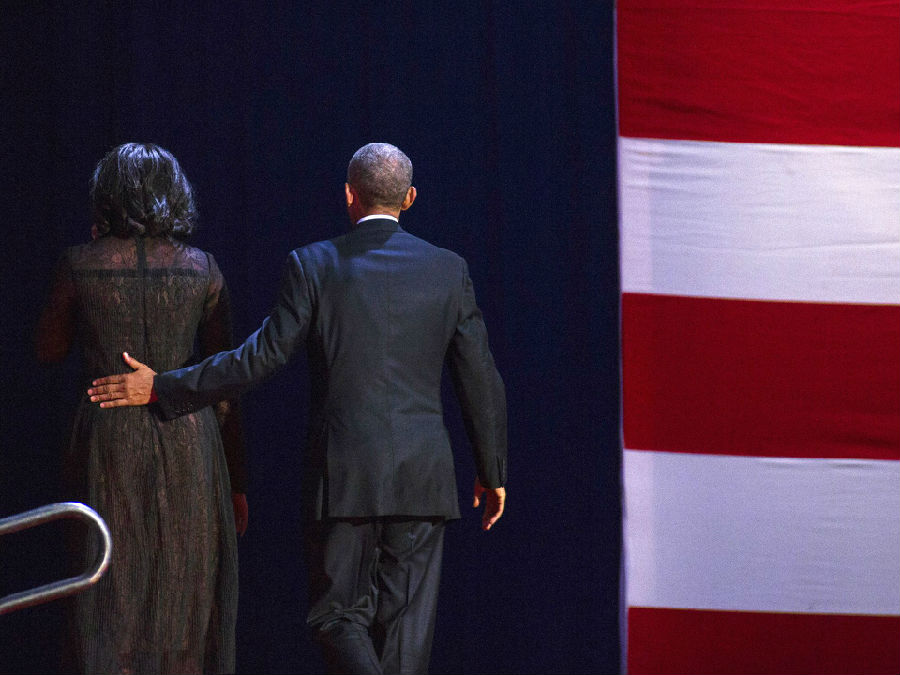And that's not easy to do.
要做到这一点并非易事。
For too many of us, it's become safer to retreat into our own bubbles,
对于很多人来说,躲进我们自己的圈子是更安全的,
whether in our neighborhoods or on college campuses, or places of worship, or especially our social media feeds,
这些圈子包括我们的邻里、大学校园、教堂或是社交网络,
surrounded by people who look like us and share the same political outlook and never challenge our assumptions.
在安全地带我们周围尽是和我们相像、有相同政治立场和从不挑战我们观点的人。
The rise of naked partisanship, and increasing economic and regional stratification, the splintering of our media into a channel for every taste,
赤裸裸的党争、经济和地域方面不断攀升的自满情绪、迎合不同人群造成的媒体间的分裂,
all this makes this great sorting seem natural, even inevitable.
这些都使区别对待的做法看起来是自然的,甚至是不可避免的。
And increasingly, we become so secure in our bubbles that we start accepting only information,
于是我们在自己的安全地带越来越感到安心,于是我们开始只接受迎合我们的观点,
whether it's true or not, that fits our opinions, instead of basing our opinions on the evidence that is out there.
无论这些观点是对是错,而不是接受那些基于现有证据的说法。

And this trend represents a third threat to our democracy.
这一趋势构成了对我们民主体制的第三道威胁。
But politics is a battle of ideas.
但是政治就是一场有关理念的战斗。
That's how our democracy was designed.
我们的民主体制设计便是基于此。
In the course of a healthy debate, we prioritize different goals, and the different means of reaching them.
在针对医疗方面的争论中,我们为不同目标划分了优先次序并制定了实现它们的不同方案。
But without some common baseline of facts, without a willingness to admit new information,
但是如果没有对底线的坚守和接受新信息的意愿,
and concede that your opponent might be making a fair point, and that science and reason matter,
如果我们不承认我们对手的观点也许是公正的,不承认科学和理性的重要性,
then we're going to keep talking past each other, and we'll make common ground and compromise impossible.
那么我们便不能实现真正的沟通,不能相互妥协并建立共同立场。












